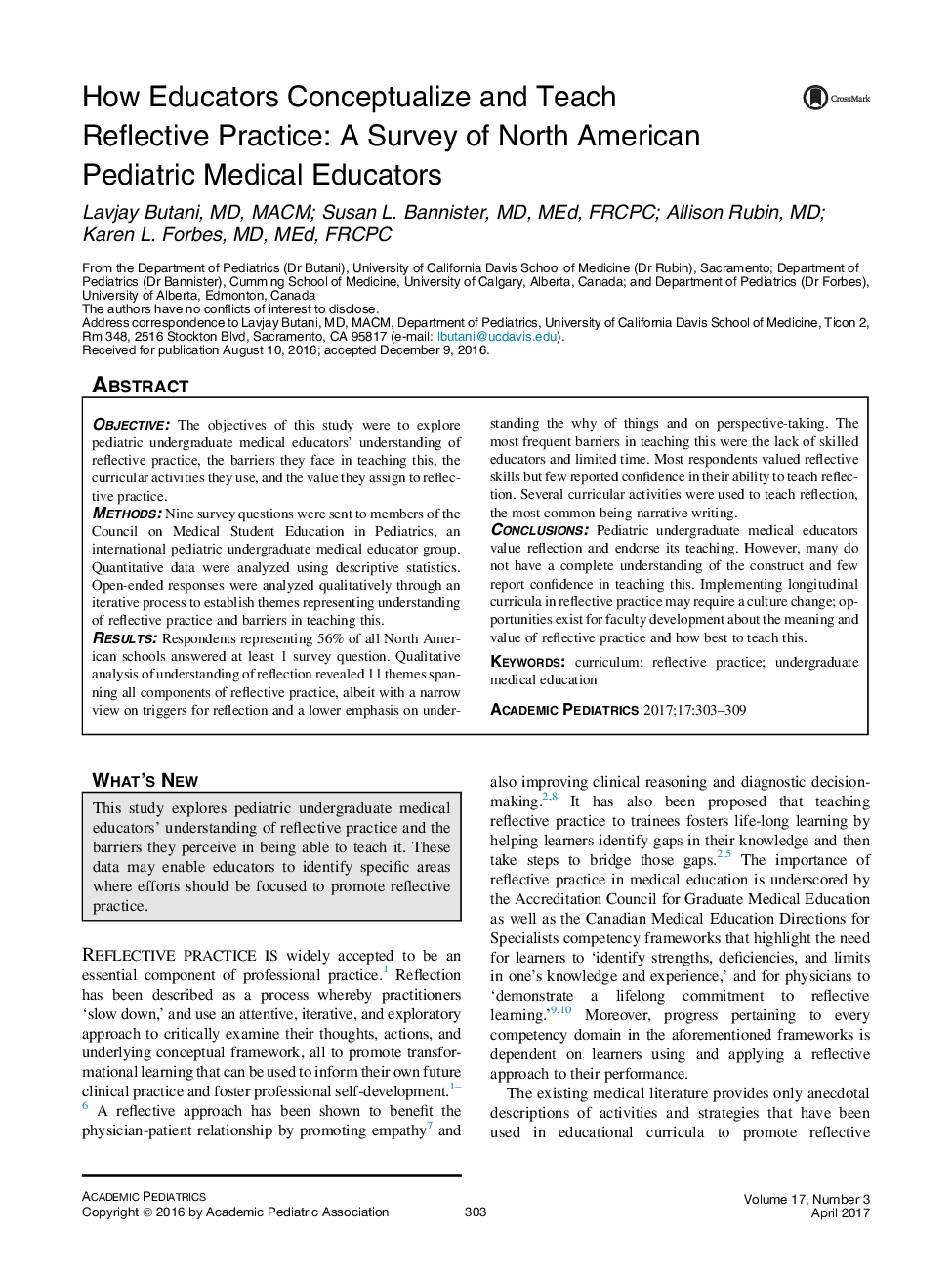| Article ID | Journal | Published Year | Pages | File Type |
|---|---|---|---|---|
| 5717002 | Academic Pediatrics | 2017 | 7 Pages |
ObjectiveThe objectives of this study were to explore pediatric undergraduate medical educators' understanding of reflective practice, the barriers they face in teaching this, the curricular activities they use, and the value they assign to reflective practice.MethodsNine survey questions were sent to members of the Council on Medical Student Education in Pediatrics, an international pediatric undergraduate medical educator group. Quantitative data were analyzed using descriptive statistics. Open-ended responses were analyzed qualitatively through an iterative process to establish themes representing understanding of reflective practice and barriers in teaching this.ResultsRespondents representing 56% of all North American schools answered at least 1 survey question. Qualitative analysis of understanding of reflection revealed 11 themes spanning all components of reflective practice, albeit with a narrow view on triggers for reflection and a lower emphasis on understanding the why of things and on perspective-taking. The most frequent barriers in teaching this were the lack of skilled educators and limited time. Most respondents valued reflective skills but few reported confidence in their ability to teach reflection. Several curricular activities were used to teach reflection, the most common being narrative writing.ConclusionsPediatric undergraduate medical educators value reflection and endorse its teaching. However, many do not have a complete understanding of the construct and few report confidence in teaching this. Implementing longitudinal curricula in reflective practice may require a culture change; opportunities exist for faculty development about the meaning and value of reflective practice and how best to teach this.
